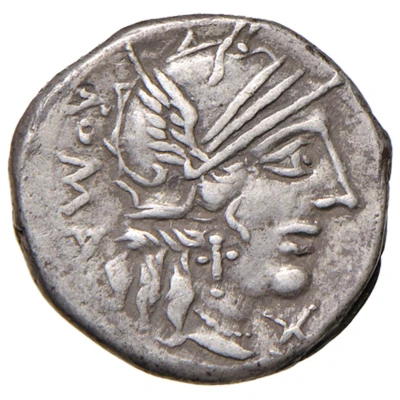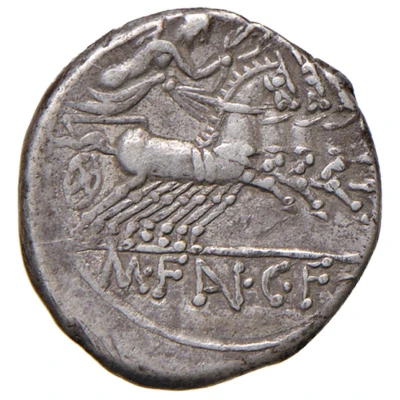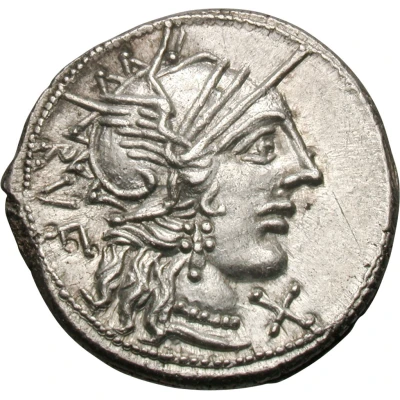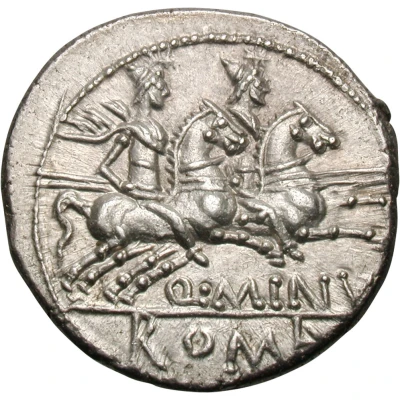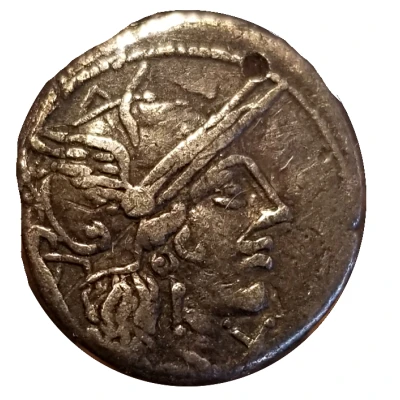
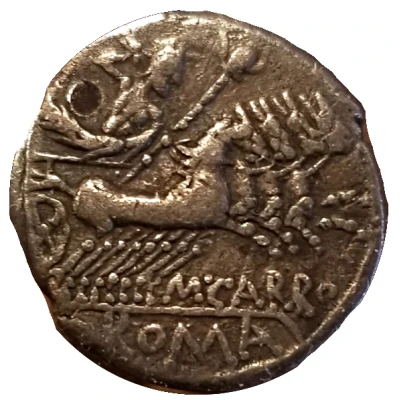

© Disha41754 (CC BY)
Denarius Papiria: M. Papirius Carbo; M•CARBO 122 BC
122 BC year| Silver | 3.5 g | 19 mm |
| Issuer | Rome › Roman Republic (509 BC - 27 BC) |
|---|---|
| Period | Republic (509 BC - 27 BC) |
| Type | Standard circulation coin |
| Year | 122 BC |
| Value | Denarius (1) |
| Currency | Denarius of 16 Asses (141 – 27 BC) |
| Composition | Silver |
| Weight | 3.5 g |
| Diameter | 19 mm |
| Shape | Round (irregular) |
| Technique | Hammered |
| Orientation | Medal alignment ↑↑ |
| Demonetized | Yes |
| Updated | 2024-10-06 |
| Numista | N#137353 |
|---|---|
| Rarity index | 87% |
Reverse
Jupiter in quadriga, right, holding reins and sceptre in left hand and hurling thunderbolt with right hand. Line border
Script: Latin
Lettering:
M·CARBO
ROMA
Comment
In 122 B.C., Marcus Fulvius Flaccus and Gaius Gracchus became tribunes and proposed a number of populist reforms. Gracchus passed a law requiring the state to provide weapons and equipment for the soldiers in the Roman army. The following year Gracchus lost his bid for reelection. When his rivals planned to repeal his populist reforms, Gracchus organized a mass protest. The Senate ordered the protest suppressed by any means necessary. Gaius Gracchus and many of his followers were killed on the streets of Rome in a pitched battle with the consul Lucius Opimius, and a force of senators and equites. Later Opimius established a tribunal that condemned 3,000 of Gracchus supporters to death. http://www.forumancientcoins.com/catalog/roman-and-greek-coins.asp?zpg=416Interesting fact
The Denarius coin was minted during the Roman Republic, a time when Rome was still a republic and not yet an empire. The coin features the image of M. Papirius Carbo, a Roman politician who was a prominent figure during this time. The fact that his name is inscribed on the coin indicates that he was a powerful and influential person in Roman society. Additionally, the coin's silver content and weight of 3.5 grams suggest that it was a valuable and widely used form of currency during this period.
